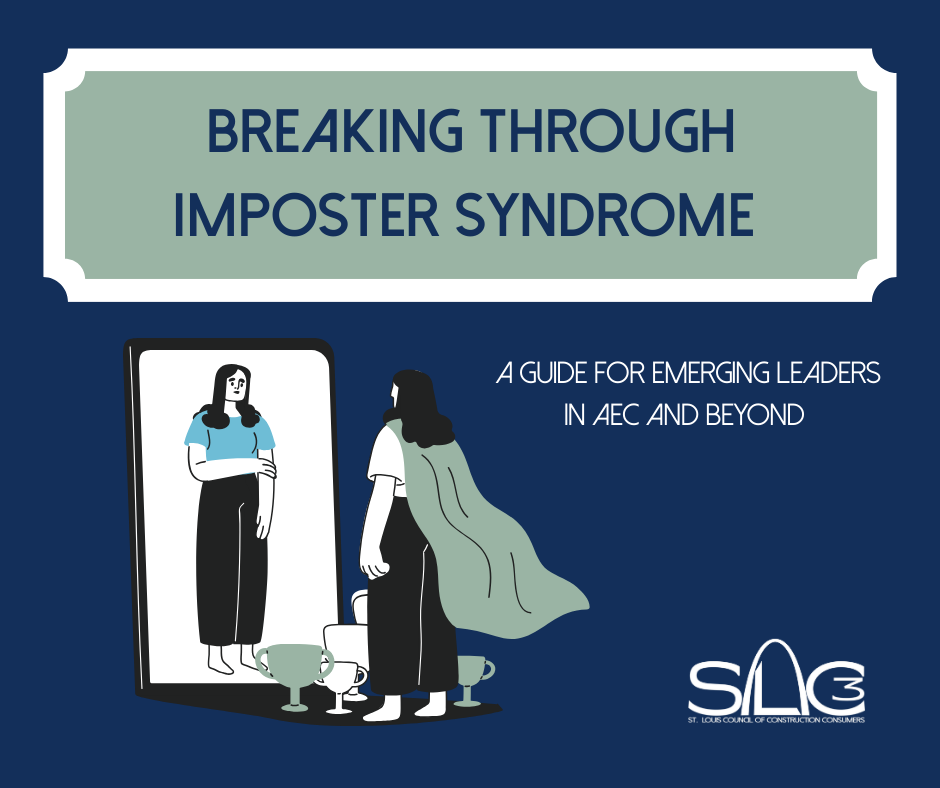As a high achiever, you likely aim to take on new responsibilities and advance in your career. Yet when leadership opportunities or high-stakes tasks arise, even seasoned professionals can doubt themselves.
This is called imposter syndrome, a phenomenon where people believe they lack the expertise or ability to carry out their given role or task. Although this is an isolating feeling, it’s one that many people often experience.
Common triggers for imposter syndrome include:
- Comparing yourself to seasoned experts on your team.
- Facing unfamiliar challenges in fast-changing fields like sustainability or AI in construction.
- Taking on leadership roles early without formal management training.
- Feeling pressure to prove yourself in client-facing or high-stakes situations.
Overcoming Imposter Syndrome
Overcoming imposter syndrome starts with reframing how you view discomfort. Feeling unsure or challenged is often a sign that you’re growing, not failing. Instead of striving for perfection, focus on learning and improvement. Look at each project, meeting, or client interaction is an opportunity to build skills and confidence.
Additionally, take time to celebrate your accomplishments, no matter how small. These wins serve as tangible reminders of the progress you’ve made and the impact you’re having. And when mistakes happen, don’t dwell on them; instead, reframe them as learning opportunities that will prepare you for future challenges.
Finally, don’t try to navigate this alone—lean on mentors and industry peers who can offer guidance, perspective, and reassurance, reminding you that even experienced leaders have faced similar doubts.
Tips on Building Confidence
Building confidence allows you to take initiative, communicate effectively, and inspire your team—start with these practical strategies:
- Prepare thoroughly, then trust yourself in execution.
- Ask questions and foster curiosity.
- Share credit and collaborate.
- Develop your leadership voice (presenting, mentoring, contributing ideas).
- Invest in training, workshops, and coaching.
If you’re experiencing imposter syndrome, it means you’re pushing yourself into new territory, which is a clear sign of growth. Leaders who embrace vulnerability and learning will be the ones who make the greatest impact.
Remember: you belong here. You’ve earned your place at the table, and your voice is needed.




